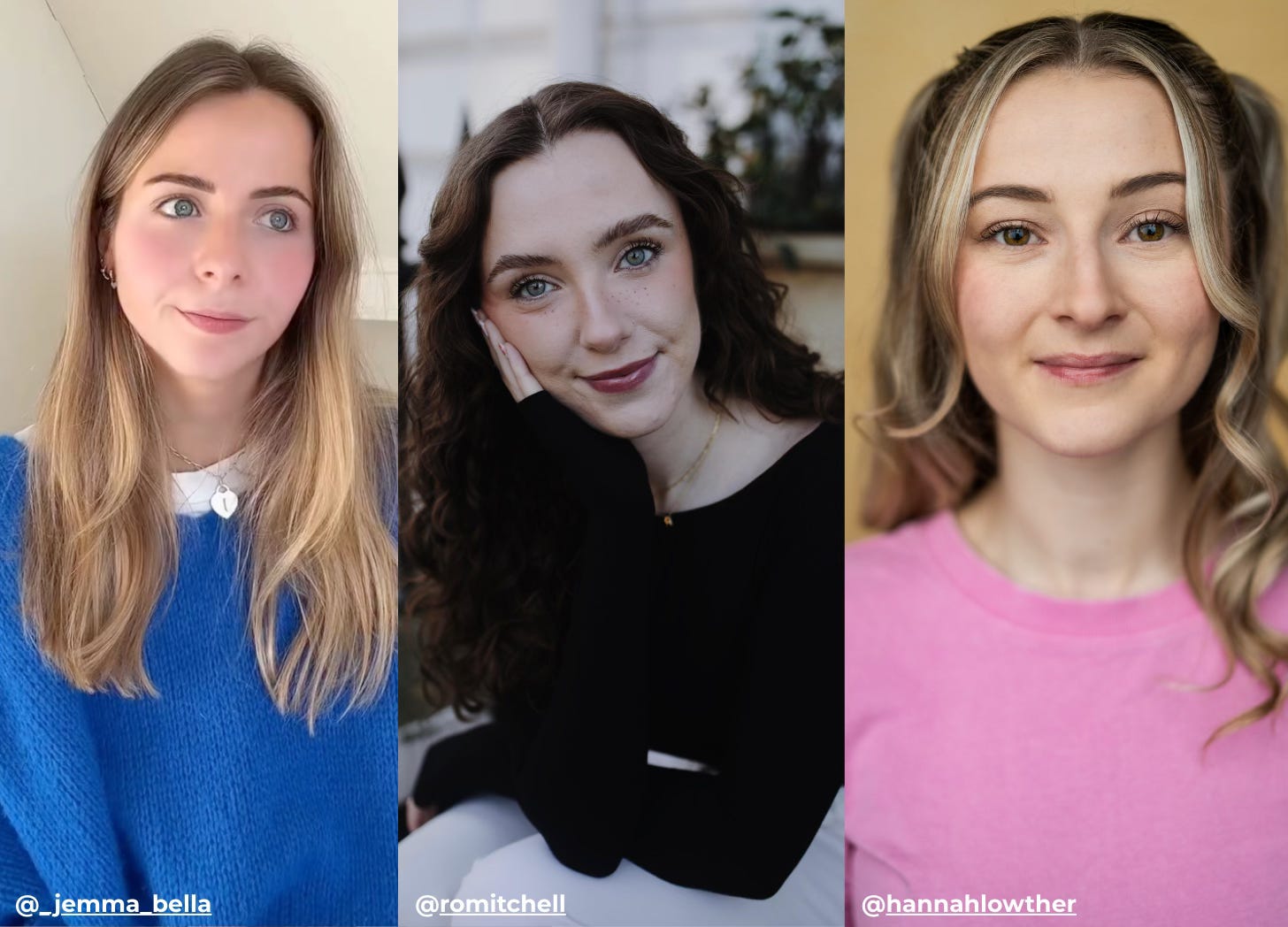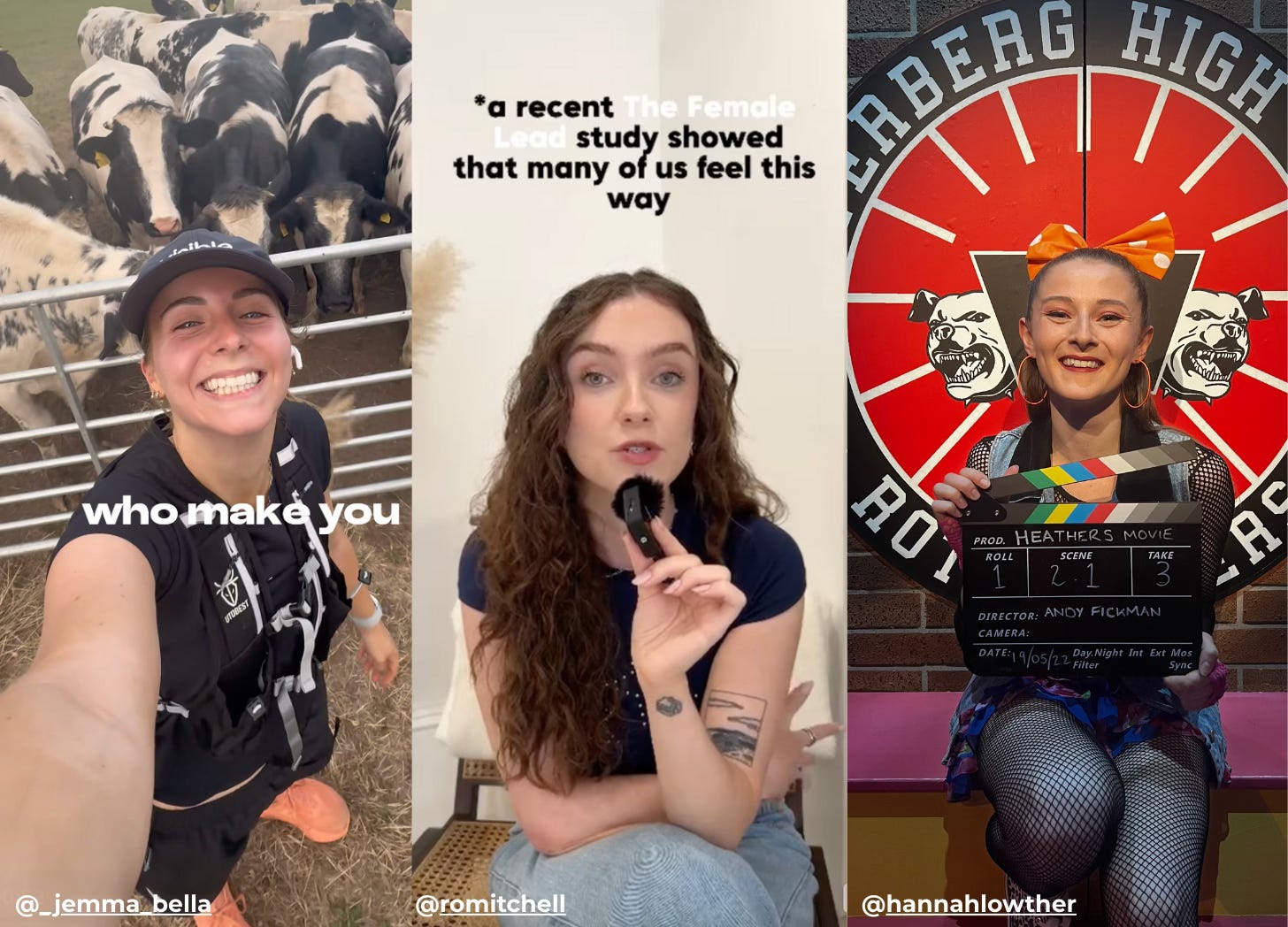Women say life is better without social media, new research reveals
New Female Lead research finds women’s experiences of social media are worsening, as British influencers front our campaign to combat the negative impact on mental health.
Two-thirds of women believe life would be better without social media, according to new research by The Female Lead.
The findings, gathered from more than 85,000 women surveyed across the charity’s 8.7 million-strong community, reveal that women’s experiences online have worsened across every measure since their initial 2023 study.
The polling shows that 66% of women now say they would be better off without social media – an increase of 6% in just two years. Almost three-quarters (73%) report a negative impact on their mental health, while more than four in five (82%) say social media has harmed their body image. Only 8% of respondents described its effect as positive. A striking 95% feel they are not fully in control of what appears in their feeds.
The results come as we launch the latest wave of Disrupt Your Feed, a long running campaign designed to help women and girls take back control of their online lives. Since 2017, the initiative has encouraged audiences to follow role models who make them feel stronger, not smaller, with previous research proving a direct link between who you follow and your sense of self-worth.
In 2025, we have partnered with three prominent British creators – Hannah Lowther, Jemma Bella and Ro Mitchell. Each shares stories of their experiences online, strategies for healthier social media use, and the women who inspire them.
Jemma Bella, who has built an audience by speaking candidly about chronic illness, urges young women to stop consuming content that “shrinks you, distracts you or makes you question your self-worth”.
“Teenage girls’ self-worth is shaped by what and who they see online,” she says. “Follow people who make you feel strong. Stop engaging with those who don’t. Because you can’t be what you can’t see.”
Her words echo The Female Lead’s earlier research. In 2019, the charity worked with psychologist Dr Terri Apter to explore the effect of online role models on teenage girls. By analysing hundreds of thousands of accounts and tracking students over a year, the study found a direct causal link between the content girls consumed and their levels of self-belief. Participants who deliberately reshaped their feeds reported measurable improvements in confidence and wellbeing.
On the evolution of the Disrupt your Feed Campaign, Dr Apter says, “We developed tools to guide teen girls away from an unhealthy social media diet towards using it as a positive resource. By continuing this campaign, The Female Lead directs its considerable power towards reducing the harms of social media and boosting teen girls’ self-direction. This highly innovative approach needs to be widely implemented.”
For founder Edwina Dunn OBE, who launched The Female Lead in 2015 to tell women’s stories and challenge gender inequality, the campaign is both a call to action and a source of hope.
Related articles
Edwina says “The data speaks for itself. We have been talking to young women about their life online for over eight years and sadly their experiences are having an increasingly negative impact on their mental health. Our research tells us this is more important than ever in the online space where women are very concerned about harmful content in their feeds.”
“We’re really proud to be working with Jemma, Ro and Hannah on Disrupt Your Feed in 2025 and will continue to work towards making social media a safer and more positive experience for all”
The Female Lead’s reach is already vast – averaging 26 million people per month – and our latest campaign aims to spark a national conversation about making online spaces safer and more fulfilling. As new voices like Hannah, Jemma and Ro join the movement, the message is clear: young women should be ruling social media, not ruled by it.







Social media nowadays is mostly people bragging about their perfect lives or terrible news about the world, give or take a few medical advances which lighten the load. All of these weigh down your mental load AND steal your time from doing better things. I guess eventually it all comes down to whether you need social presence or not. If you're not in any business where you need to face the socials, then closing the faucet would be easier.